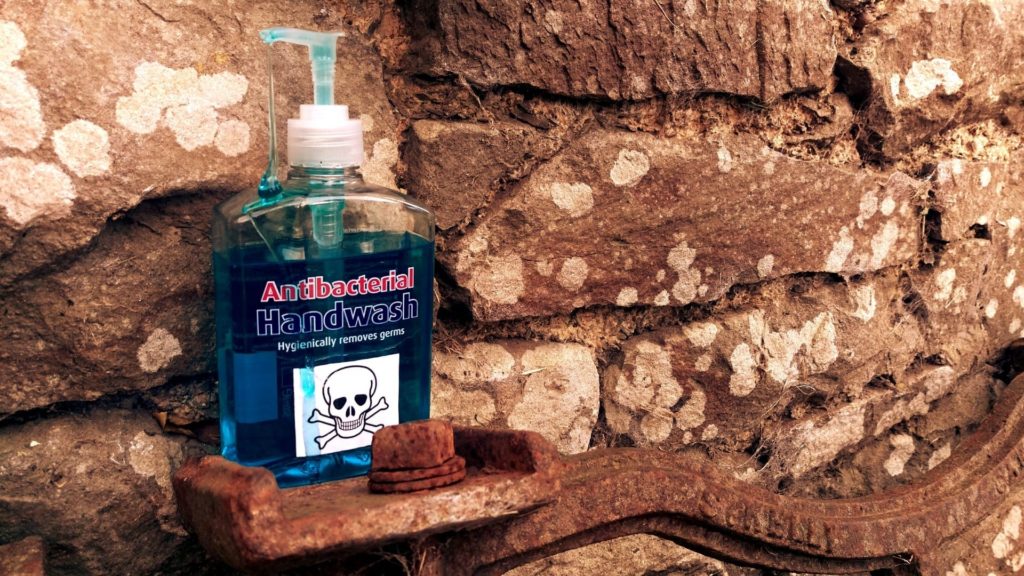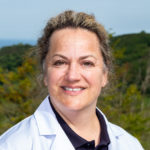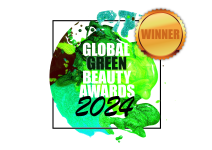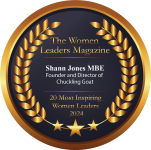Today is Clean Your Hands Day, as decreed by the World Health Organisation. So, let’s talk hand washing!
First of all, if you use antibacterial soap, I’d like you to pick up the bottle and have a look at the ingredients. Does it contain triclosan? If so, I want you to walk straight over to the bin and throw it away!
(Check your toothpaste while you’re at it – and same applies! Colgate Total for example does contains triclosan – which has been has been linked to cancer and bone malformations in animals – but you won’t find it listed on the container! You have to do some research. Have a quick read here)
Triclosan, a chemical compound used widely in products like antibacterial soaps, toothpaste, pens, diaper bags and medical devices, has now been positively identified as an endocrine-disrupting compounds, (EDCs) which negatively impact human health by mimicking or affecting hormones.
What does this mean for you?
In a word – allergies. If you have eczema, food allergies, hay fever or asthma, your use of triclosan is making it worse, according shown by a new study by University of Michigan School of Public Health study. 1
There is growing concern among the scientific community and consumer groups that these EDCs are dangerous to humans at lower levels than previously thought.
So throw anything that contains triclosan in the bin – today!
So, if antibacterial soap is a no-no, what do we use instead?
Professor Mark Spigelman, of the UCL Centre for Infectious Diseases and International Health, says the time has come to re-evaluate the concept of using antibiotics and scrubbing hands and wounds with antiseptic soaps. He suggests that scientists should investigate whether saturating the skin with ‘good’ bacteria would offer better protection against deadly germs.
Spigelman, who is now calling for a study to be set up in hospital units in which antibiotics would be banned, to explore alternative health protection measures against MRSA, says this:
“Inappropriate use of antibiotics remains a major problem, despite our ever-growing understanding of how bacteria behave. For example, any student who has grown bacteria in a lab will know that they generally do not grow on top of one another. So when we wash our hands, we could actually be killing off harmless commensals to the extent that we leave space for other bacteria, such as MRSA strains, to settle.
“Perhaps we should be thinking about using probiotics and even dipping our hands after thorough washing into a solution which contains harmless bacteria, which could then colonise our skin and prevent pathogenic bacteria from settling on it.
“It must be remembered that after almost 40 years, MRSA has not become widespread except in hospitals where we use the most advanced antibiotics and most rigorous antiseptic measures. Why is this? More of the same does not seem to be working — new antibiotics and antibacterial soaps have not stopped MRSA.
“At the same time we could trial the benefits of using ‘good’ bacteria to saturate the skin on doctors’ hands and even patients’ wounds prior to surgery, to see if this would prevent the settling of pathogenic, antibiotic-resistant bacteria. For instance, a surgeon who has spent the morning repeatedly scrubbing his or her hands in an operating theatre may well have got rid of many harmless skin commensals. When the surgeon then goes to the wards, the more virulent bacteria may settle into the areas left vacant. As a first step, the surgeon could use probiotics to try and prevent this sequence of events, for example by dipping their hands into a probiotic substance such as yoghurt.” 3
Get the concept that he’s explaining here? The antibacterial soaps just clear the space – and leave it empty. Nature abhors a vacuum – and nature will fill that vacuum, with opportunist bugs like MRSA.
So we’ve got to fill the space first. Fill it up with the right kind of bacteria – good commensals, that will help us. Once the space is filled, the commensals fight off the bad guys – and our work is done for us.
Seeding the space with good bacteria is the RIGHT KIND OF CLEAN.
So – while the Powers That Be spend the next ten years arguing on this one – what can you do to protect your family, today? How can you get triclosan out of your home, and prevent the allergic march of eczema, food allergies, hay fever and asthma?
Use probiotic cleansers and lotions, to saturate your skin with the good bacteria that will take up space, and prevent the bad bacteria from taking hold.
Try kefir cleansing bars, which contain the live probiotics found in the kefir itself. A whole lot more convenient than dipping your hands in yoghurt!
![]()
Shann Nix Jones is the author of the #1 Amazon Best Seller Secrets from Chuckling Goat: How A Herd Of Goats Saved My Family And Started A Business That Became A Natural Health Phenomenon

















